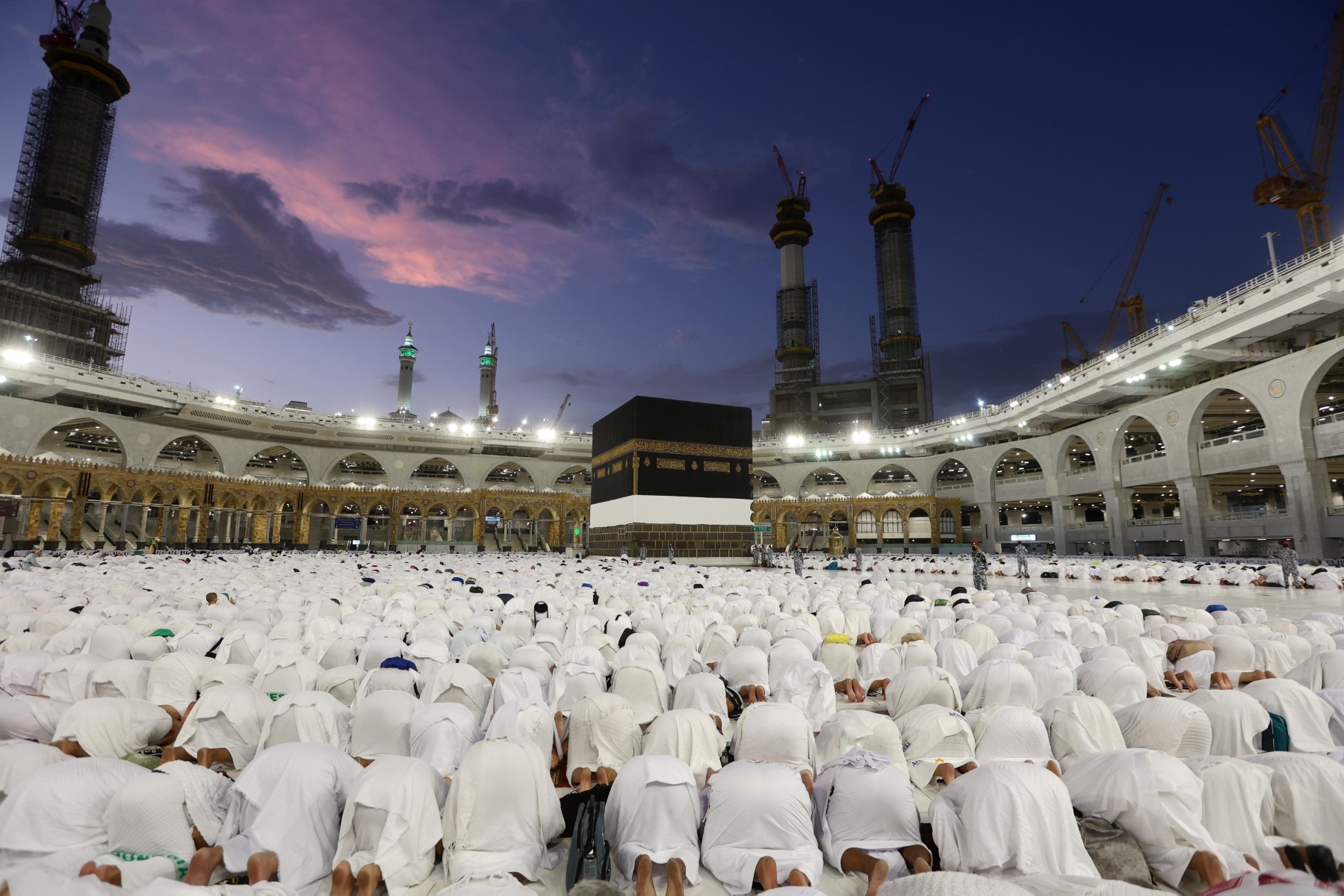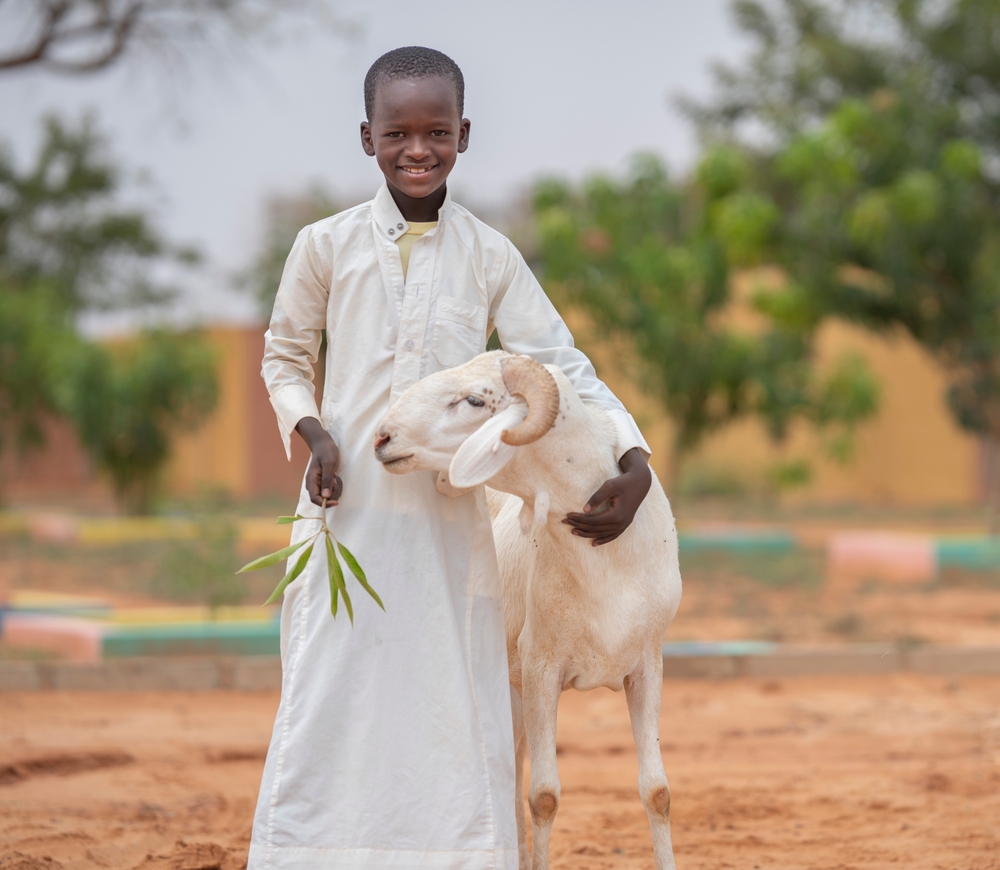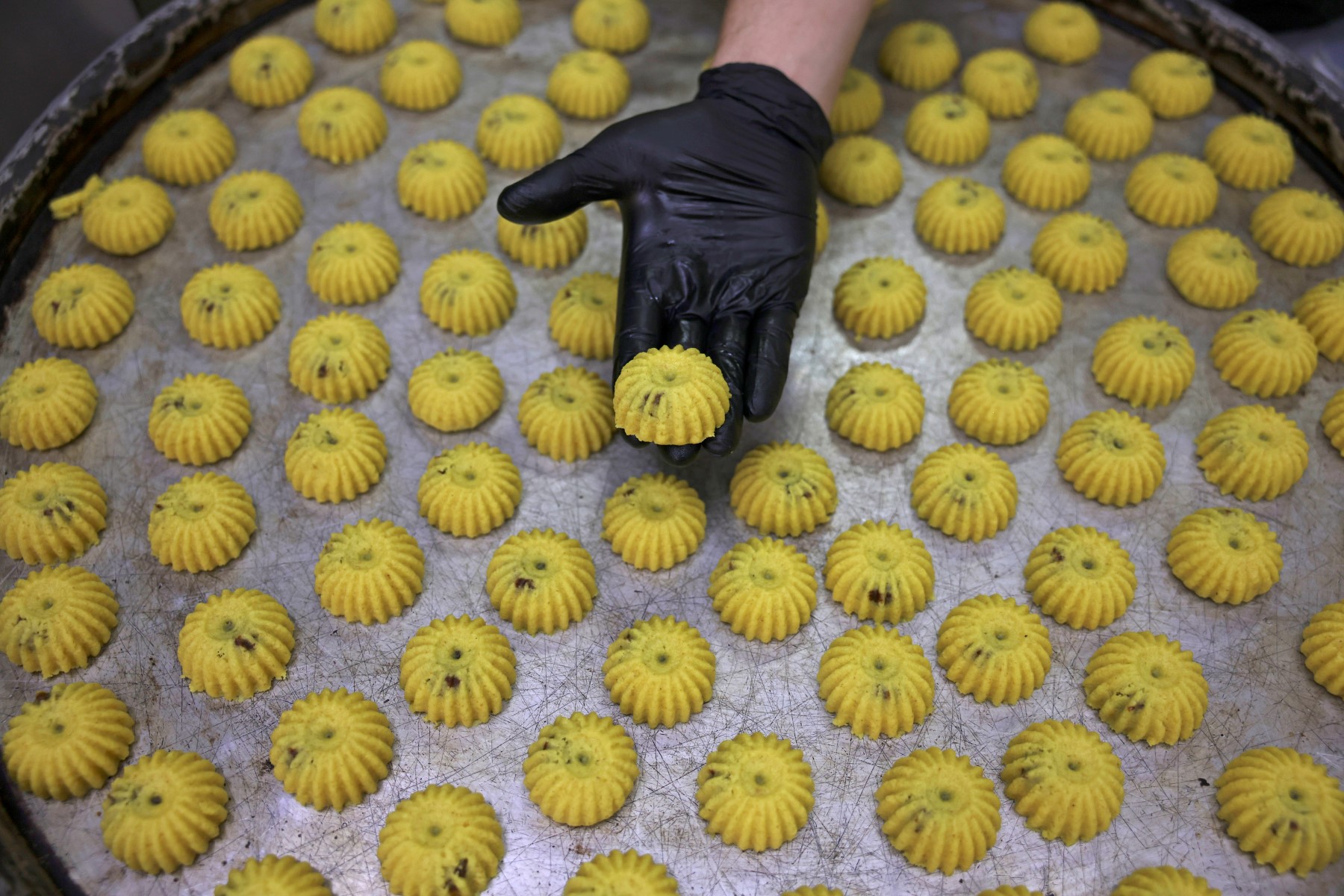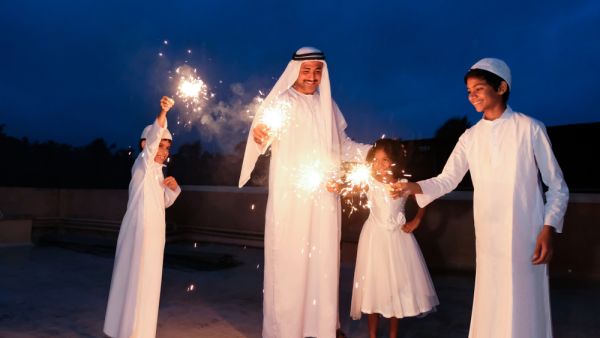ALBAWABA Eid al-Adha, also known as the Festival of Sacrifice, is one of the most important religious holidays for Muslims around the world. It commemorates the willingness of Prophet Ibrahim (Abraham) to sacrifice his son as an act of obedience to God.
This auspicious occasion is marked by various customs and traditions that bring Muslims together in celebration and reflection.
As Eid al-Adha approaches, Muslims engage in various preparations both spiritually and materially.

They make a concerted effort to purify themselves by seeking forgiveness and performing acts of charity. Additionally, Muslims may read the Qur'an, engage in extra prayers, and reflect on the importance of sacrifice and obedience to God.
On the morning of Eid al-Adha, Muslims gather at mosques or designated outdoor prayer grounds for a special congregational prayer known as the Eid prayer.
This prayer is led by an imam and is an essential part of the celebrations. Muslims dress in their finest attire, with men often wearing traditional clothing, and women adorning colorful outfits and hijabs.
After the Eid prayer, Muslims exchange warm greetings by saying "Eid Mubarak," which translates to "Blessed Eid."
They embrace and extend well wishes to one another, fostering a sense of unity and love within the community.

A significant aspect of Eid al-Adha is the commemoration of Prophet Ibrahim's willingness to sacrifice his son. While the act of sacrificing an animal, such as a sheep, goat, or cow, is performed by Muslims who can afford it, the essence lies in understanding the underlying principles of sacrifice, faith, and obedience.
The meat from the sacrificed animal is divided into three parts: one for personal consumption, one for relatives and friends, and one for the less fortunate.

Eid al-Adha is a time for Muslims to come together with family and loved ones. Relatives and friends gather to share festive meals, which often include traditional dishes and delicacies.
These gatherings foster a sense of unity, love, and gratitude, as people rejoice in each other's company and the blessings bestowed upon them.
Another common tradition during Eid al-Adha is the exchange of gifts. Muslims, especially children, receive presents as a symbol of joy and celebration.
Additionally, families take the time to thank God for His blessings and express gratitude for the opportunity to observe this sacred occasion.








